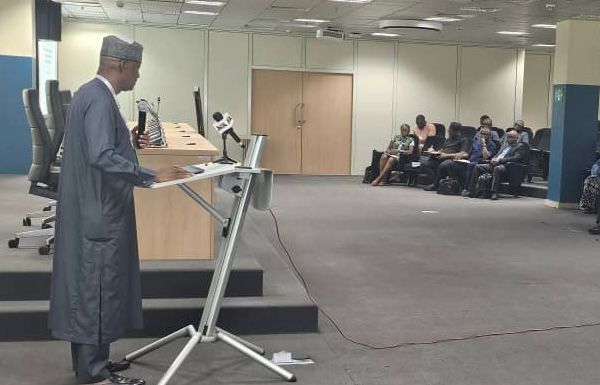From Isaac Anumihe, Abuja
The Nigerian Independent System Operator (NISO) has condemned the recent slashing of electricity tariffs by the Enugu State Electricity Regulatory Commission (EERC), warning that the policy could destabilise the Nigerian electricity market.
Speaking at a stakeholders’ meeting convened by NISO in Abuja, the Managing Director/CEO, Engr Abdul Mohammed, noted that the intervention meeting was aimed at ensuring that no action disrupts the Nigerian electricity market’s stability, the integrity of contracts, or operational obligations that guarantee reliable supply.
According to him, if the EERC implements the tariff reduction, it would cause significant disruptions in the system. “Such a measure, if implemented, could have serious operational implications, particularly at the Transmission Company of Nigeria (TCN)/distribution companies (DisCos) interfaces where power transfer capacity service level agreements (SLA) are managed,” he said.
The action, Mohammed explained, has prompted necessary questions about how such decisions interact with the operations, dispatch, commercial arrangements, and financial equilibrium of the Nigerian Electricity Supply Industry (NESI) as a whole.
“Our role in convening this discussion is grounded in both our market administration and system operations mandates through the instrumentalities of the Electricity Act 2023, the market rules, and the grid code, which empower the market operator to administer the wholesale electricity market, ensure compliance with market rules, and uphold contractual obligations. NISO’s mandate is to safeguard the financial integrity and orderly operation of the market,” he said.
Mohammed further noted that NISO is responsible for monitoring participants’ compliance with operational obligations, including dispatch instructions, system reliability, and service level agreements on power transfer capacity at TCN–DisCo interfaces. “NISO is responsible for both commercial balance in the market and ensuring technical stability and operational compliance—both of which may be affected by the current situation,” he added.
He clarified that NISO approaches the discussion with neutrality, respect, and an open mind, without questioning the authority of the EERC or the operators. “We fully recognise the statutory powers of the Enugu State Electricity Regulatory Commission to regulate activities within its jurisdiction, and equally acknowledge the licence and operational responsibilities of the Enugu Electricity Distribution Company (EEDC) in serving its customers,” Mohammed stated.
However, he emphasised NISO’s distinct role as the administrator of the Nigerian wholesale electricity market and a quasi-regulator of market operations. “Our mandate obliges us to safeguard the integrity of the market settlement framework, ensure contractual obligations are respected, and maintain the delicate balance that allows every participant—from generators to distributors, from regulators to consumers—to operate in a financially sustainable and technically reliable environment,” he said.
Mohammed outlined the meeting’s objectives: to understand the facts, assumptions, and considerations behind the tariff adjustment; to examine its potential impact on the wider market and existing contractual frameworks; and to explore how to harmonise state-level regulatory innovation with the commercial discipline and stability required in the wholesale electricity market.
“We believe that fair electricity prices, sustainable business operations, and a stable electricity market are not mutually exclusive goals—they are interdependent. Achieving all three requires dialogue, transparency, and coordination among all relevant institutions. I am confident that with the depth of expertise gathered here, our deliberations today will be constructive, respectful, and solutions-oriented,” he concluded.


